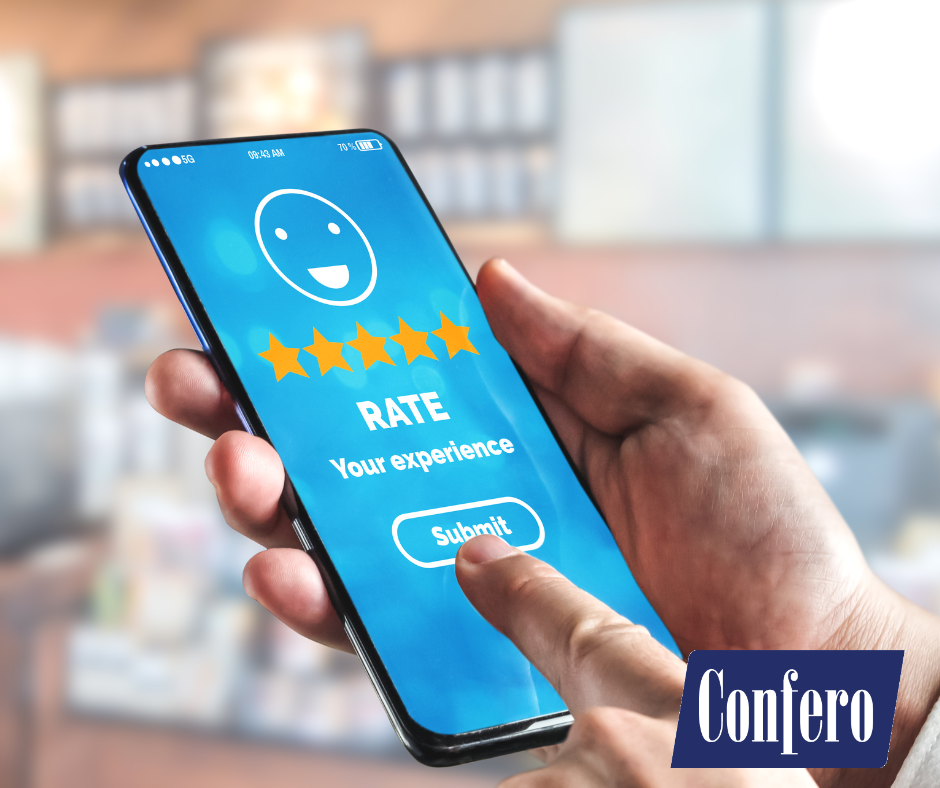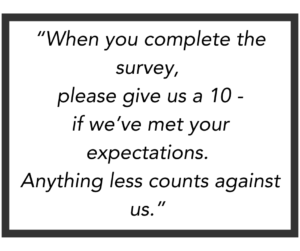As a national mystery shopping company, we know that measurement is critical for improving customer experience. Mystery shopping, post-visit surveys, and other customer feedback programs give businesses valuable insight into how well they are meeting expectations, whether they operate nationwide or in a specific region.
But when the measure becomes the goal, the process breaks down.
The Scenario You’ve Probably Experienced
You are wrapping up a purchase at a car dealership, retail store, or restaurant when the employee leans in and says:
These requests may seem harmless, but they can distort the very data companies rely on to improve service.
Why It’s a Problem for Businesses
When employees coach customers on how to respond, they unintentionally turn a valuable measurement tool into a vanity metric.
- Inaccurate Data: Coached scores mask real service gaps
- Lost Trust: Customers may feel manipulated, hurting brand perception
- Missed Insights: Scores look positive, but real problems go unresolved
Examples:
- A dealership’s surveys always score “10” because staff ask for it, hiding issues like slow finance processing.
- A drive-thru employee holds a bag outside the pickup window so the service-time clock stops, even though the food is not in the customer’s hands.
- A hotel guest survey includes room rate satisfaction, something front desk staff cannot control, yet they are still held accountable for the score.
The “Gotcha” Trap
If you use your feedback survey as a “gotcha” tool for employees, you are not identifying the true cause of a problem. Scapegoating one individual does not answer questions like:
- Was it a hiring mismatch?
- Was training inadequate?
- Was management ineffective?
Without understanding root causes, problems persist.
Incentives Can Backfire
When bonuses or recognition are tied too closely to hitting specific metrics, employees may “game” the system. This is exactly what Goodhart’s Law warns about: “When a measure becomes a target, it ceases to be a good measure” (Wikipedia). Incentives only work well if the feedback program is designed properly.
Instead of requesting a number, simply ask customers for feedback. AI-powered sentiment analysis can process open-ended responses, identify patterns, and uncover insights that human reviewers might miss , without the bias of a coached score.
How Mystery Shopping Research Can Help
At Confero, we design customer experience research and mystery shopping programs that give companies unbiased, actionable insights. These programs help you:
- Compare performance to national and regional industry benchmarks
- Identify strengths and weaknesses without survey bias
- Find root causes behind poor customer experiences
- Validate survey results with independent observations
When feedback is honest and measurement supports the goal, you gain the insights needed to improve loyalty, strengthen your brand, and grow your business.
How Confero Can Help Your Business
As a national mystery shopping company serving both multi-region and single-market brands, Confero delivers accurate, independent feedback that reflects your customers’ real experiences. Whether you operate restaurants, automotive dealerships, retail stores, or service centers, our customer experience programs ensure your data drives meaningful improvement.
Ready to replace coached scores with actionable insights?
Follow Confero’s LinkedIn profile to be alerted to more thought provoking business insight articles.



